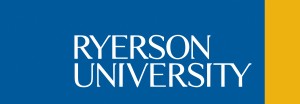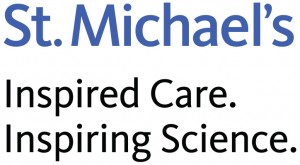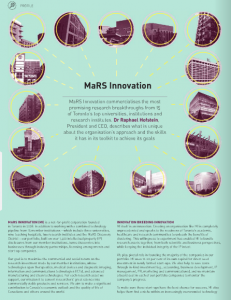Prima IP co-sponsoring the Ryerson University and St. Michael’s Hospital event
 When your business demands staying current with the newest inventions springing up across 15 academic members, keeping pace with what’s happening is half the challenge.
When your business demands staying current with the newest inventions springing up across 15 academic members, keeping pace with what’s happening is half the challenge.
That’s part of the reason why MaRS Innovation and Prima IP are sponsoring winners of an  Angels’ Den competition involving the Institute for Biomedical Engineering, Science and Technology (iBEST).
Angels’ Den competition involving the Institute for Biomedical Engineering, Science and Technology (iBEST).
iBEST is a partnership between Ryerson University and St. Michael’s Hospital that brings together Ryerson’s engineering and science strengths with St. Michael’s biomedical research and clinical expertise. The contest, which took place on June 26, 2015, riffs on the popular Dragon’s Den format.
 “As a guest judge for the iBEST trainee competition this year, I reviewed a lot of thought-provoking ideas and MaRS Innovation congratulates all of the 2015 award winners,” says Dr. Fazila Seker, director of physical sciences. “Many of our portfolio technologies have their origins in this type of collaboration between researchers and medical staff, which is why we’re so excited to sponsor this competition. Fostering these types of relationships is vital to Toronto’s commercialization ecosystem.”
“As a guest judge for the iBEST trainee competition this year, I reviewed a lot of thought-provoking ideas and MaRS Innovation congratulates all of the 2015 award winners,” says Dr. Fazila Seker, director of physical sciences. “Many of our portfolio technologies have their origins in this type of collaboration between researchers and medical staff, which is why we’re so excited to sponsor this competition. Fostering these types of relationships is vital to Toronto’s commercialization ecosystem.”
For the 2015 award period, MaRS Innovation will provide the competition’s winners with upfront commercialization consultation services to help shorten the time it may take for their ideas to reach the market. These services will be offered in collaboration with the technology transfer offices within St. Michael’s Hospital and the Vice-President of Research and Innovation office at Ryerson University as appropriate. In partnership with Prima IP, MaRS Innovation will also cover the initial patent application preparation and filing for the top two awardees of the iBEST event. Future award winners will receive similar support.
“Canada’s future economy depends on programs that encourage and facilitate innovation allowing Canada to remain competitive in the global marketplace and attract foreign investment,” said Marcelo König Sarkis, principal, founder and senior patent agent at Prima IP. “We are passionate in our support for Canadian inventions from the initial research phase to start-up and beyond.”





